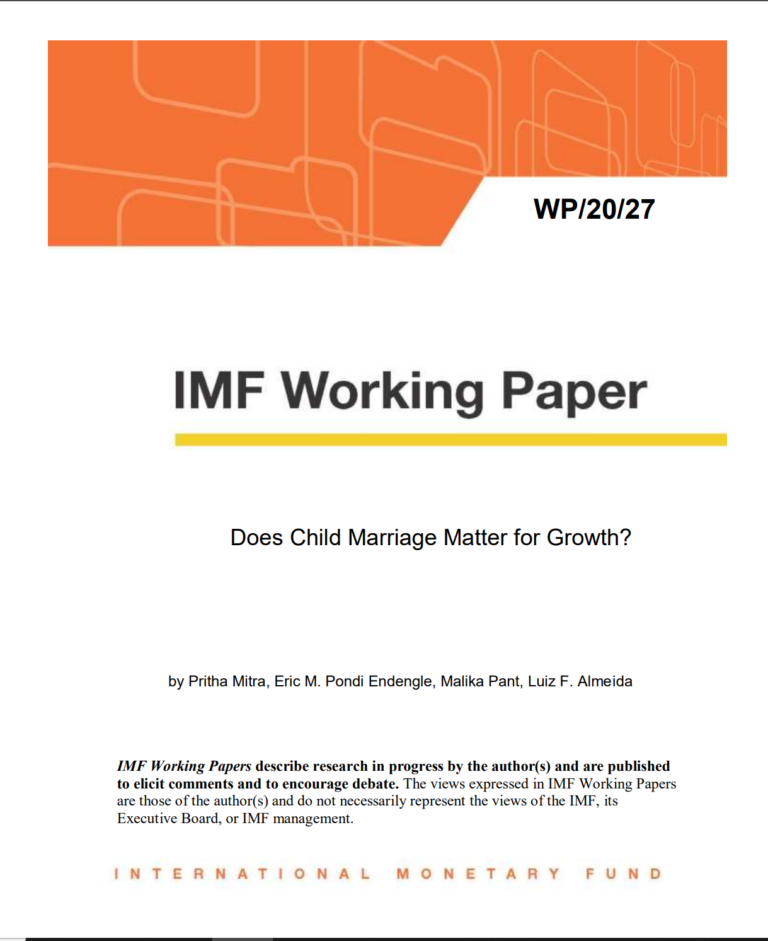Global attention to ending child marriage and its socio-economic consequences is gaining momentum. Ending child marriage is not only critical from a development perspective but it also has important economic implications.
This paper is the first to quantify the relationship between child marriage and economic growth. Applying a simultaneous equations model, the analysis shows that eliminating child marriage would significantly improve economic growth—if child marriage were ended today, long-term annual per capita real GDP growth in emerging and developing countries would increase by 1.05 percentage points.
The results also provide insights on policy prioritization in developing comprehensive strategies to end child marriage. For example, the strong interdependent relationship between education and child marriage suggests that education policies and the budgets that support them should place greater emphasis on reducing child marriage.

